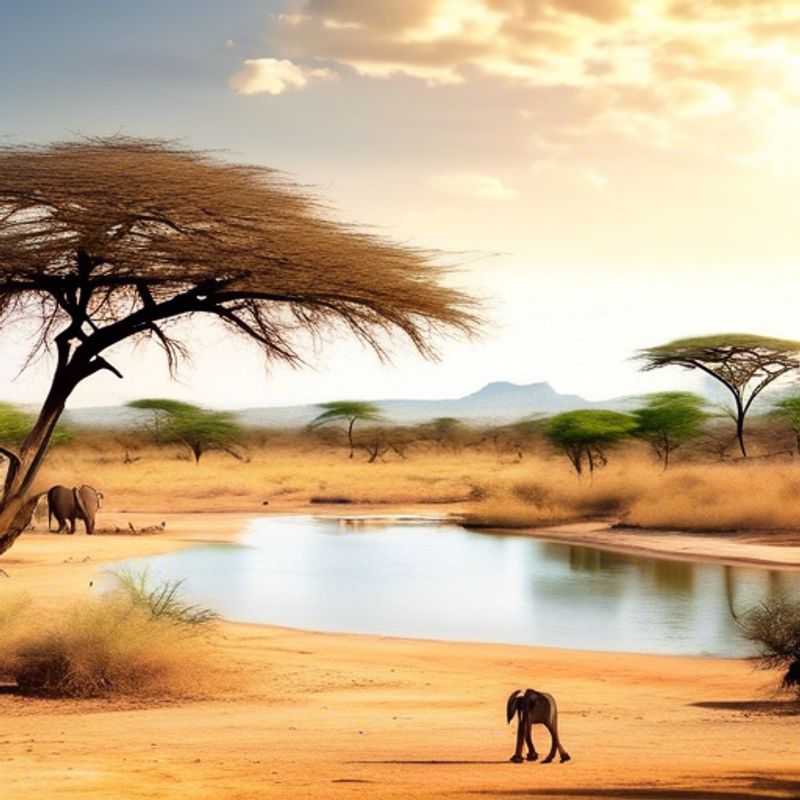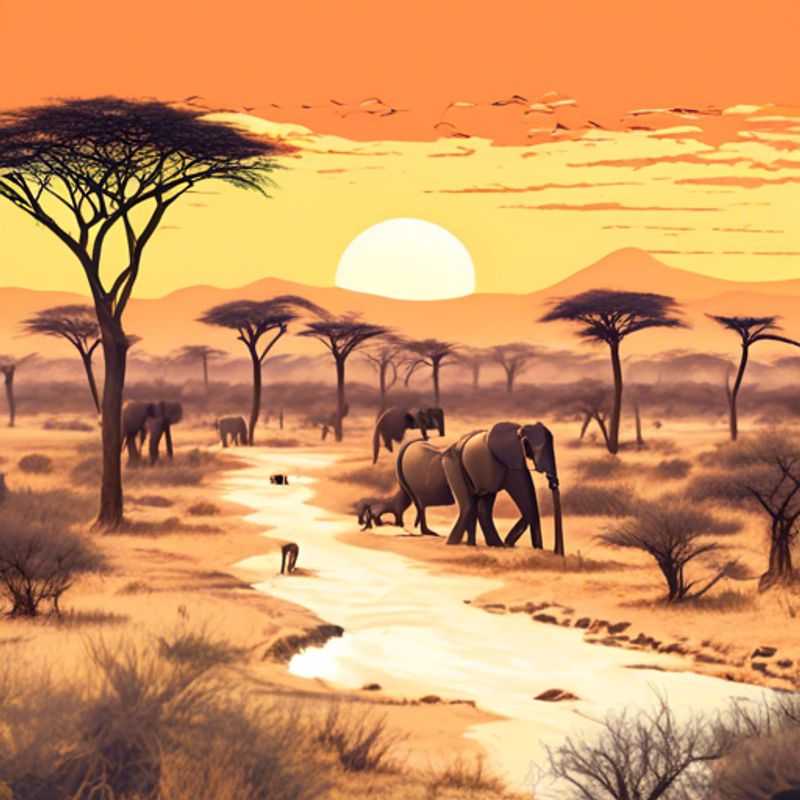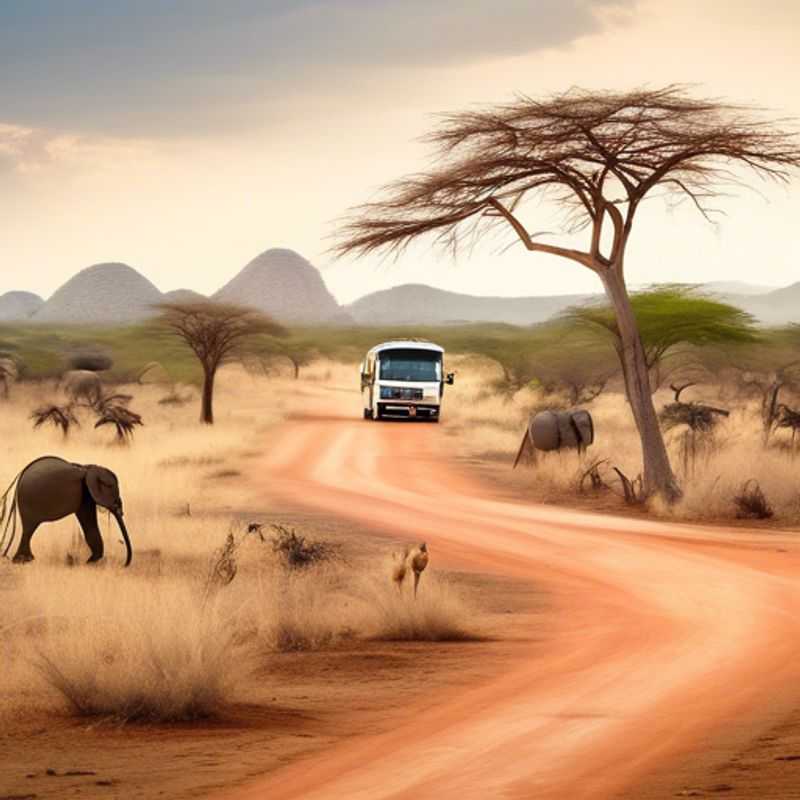¿Qué hace especial al Parque Nacional Ruaha, Tanzania?

¿Es seguro viajar a Mochilero en 2026?
El resumen en español de un artículo sobre la seguridad para mochileros en 2026, con énfasis en la seguridad y la preparación, es el siguiente: "Prepararse para un viaje de mochilero en 2026 implica una planificación exhaustiva y la adopción de medidas de seguridad actualizadas. Es fundamental investigar a fondo los destinos, prestando especial atención a la estabilidad política, los riesgos sanitarios y las normativas locales. La tecnología juega un papel crucial; asegúrate de tener dispositivos de comunicación confiables, como teléfonos satelitales en áreas remotas, y aplicaciones de seguridad indispensables. Compartir tu itinerario con alguien de confianza y tener contactos de emergencia bien definidos es vital. Además, infórmate sobre los seguros de viaje adecuados que cubran emergencias médicas y cancelaciones. Mantenerse alerta en todo momento, evitar situaciones de riesgo innecesarias y confiar en tu instinto son consejos atemporales que siguen siendo cruciales para una experiencia de mochilero segura y gratificante en 2026."
¿Qué hace especial al Parque Nacional Ruaha, Tanzania?
¡Jambo! ¿Listo para descubrir la magia de Ruaha, el parque nacional más grande de Tanzania?

También te puede gustar
Tarifas de entrada al Parque Nacional Ruaha: Una experiencia auténtica en Tanzania
Ruaha: Más allá de las tarifas, la joya escondida de Tanzania
Descubre Ruaha sin gastar una fortuna: Consejos para viajeros inteligentes
El precio de la aventura: ¿Vale la pena la tarifa de entrada a Ruaha?
Tarifas y tesoros: Explorando el Parque Nacional Ruaha de forma económica y segura
Ruaha National Park: Admisión, Aventura y Autenticidad en Tanzania
Precios de entrada al Parque Ruaha y cómo maximizar tu experiencia
Más que una tarifa: Inmersión cultural en el Parque Nacional Ruaha
Evita las trampas turísticas: Tu guía para visitar Ruaha a bajo costo
Ruaha: Una perspectiva local sobre las tarifas de entrada y el turismo responsable
Jambo, amigos! As your seasoned guide to the wonders of Tanzania, I'm thrilled to craft a bespoke itinerary for three couples planning an eco-tourism adventure to Ruaha National Park this winter. Ruaha, during the cooler months (June-October), offers incredible game viewing opportunities with fewer crowds than during the peak season. Expect pleasantly warm days and cool nights, perfect for exploring this magnificent park. The average temperature ranges from 15-25°C (59-77°F).
Let's dive into the specifics for your six-person group. Entrance fees to Ruaha National Park are currently $60 per person per day. Given a typical 3-day visit, this will total $1080 for the group. Remember, this doesn’t include park fees for your vehicle. You'll also need a guide; we can arrange a highly experienced local guide at a cost of $150 per day, or $450 for the entire trip. Your guide will have deep knowledge of the area, spotting animals and sharing cultural insights.
Transportation within the park is crucial. You'll need a 4x4 vehicle, suitable for navigating the diverse terrain. We recommend a well-maintained Land Cruiser, which can be hired with a driver at approximately $200 per day, totaling $600 for the three-day trip. This price usually includes fuel.
Accommodation-wise, I suggest eco-lodges outside the park itself, balancing comfort with environmental consciousness. Expect to pay around $150 per night per couple, adding up to $1350 for the entire stay. This includes comfortable accommodations and delicious, locally-sourced meals.
Talking about food, you'll relish the opportunity to savor Tanzanian cuisine! Expect to find dishes featuring fresh, locally-grown ingredients. Nyama choma (grilled meat), ugali (cornmeal porridge), and pilau (spiced rice) are staples. Try local fruits like mangoes and passion fruit. Budget around $50 per day for food and drinks for the group, so $150 in total for meals outside of those included in your lodge stay.
Beyond the park, consider exploring the local markets and villages. The warmth and friendliness of the Tanzanian people is infectious. Observe their vibrant traditions and learn about their rich cultural heritage, understanding that photography should always be approached respectfully. You might encounter traditional music played on instruments like the ngoma (drums) and marimba. Remember to always respect local customs and traditions.
Considering everything – park fees, guiding, transportation, accommodation, and meals – your total estimated cost for a three-day, two-night Ruaha National Park adventure will be approximately $3630. This, of course, can vary depending on specific choices, but it serves as a helpful guideline. This cost may not include souvenirs or any other expenses you might have in mind.
Remember to book well in advance, especially during the winter season, and always be prepared with appropriate clothing, insect repellent, and sunscreen! Karibu Tanzania!

Lo que los mochileros deben saber antes de visitar en 2026
Si eres un mochilero y planeas tu viaje para 2026, hay información clave que debes tener en cuenta. La preparación es fundamental para una experiencia inolvidable y sin contratiempos. Primero, investiga a fondo tu destino elegido; las condiciones climáticas, la cultura local y las normativas son aspectos cruciales.
En cuanto a la seguridad, siempre mantente informado sobre las zonas recomendadas y aquellas que es mejor evitar. Es vital tener copias digitales y físicas de tus documentos importantes, como pasaporte y visados. Considera adquirir un seguro de viaje integral que cubra emergencias médicas y pérdida de equipaje.
Para optimizar tu presupuesto, investiga opciones de alojamiento económico como hostales y guesthouses. Aprende algunas frases básicas del idioma local; esto no solo facilitará la comunicación, sino que también será muy apreciado por los lugareños.
La logística de transporte también es importante. Infórmate sobre las mejores maneras de moverte, ya sean autobuses locales, trenes o vuelos de bajo costo. Planificar con antelación puede ahorrarte dinero y tiempo valioso.
Finalmente, sé respetuoso con la cultura y las costumbres del lugar que visitas. Adapta tu vestimenta y comportamiento según las normas locales, y siempre busca aprender y experimentar de manera auténtica. ¡Un viaje bien planeado es un viaje exitoso!